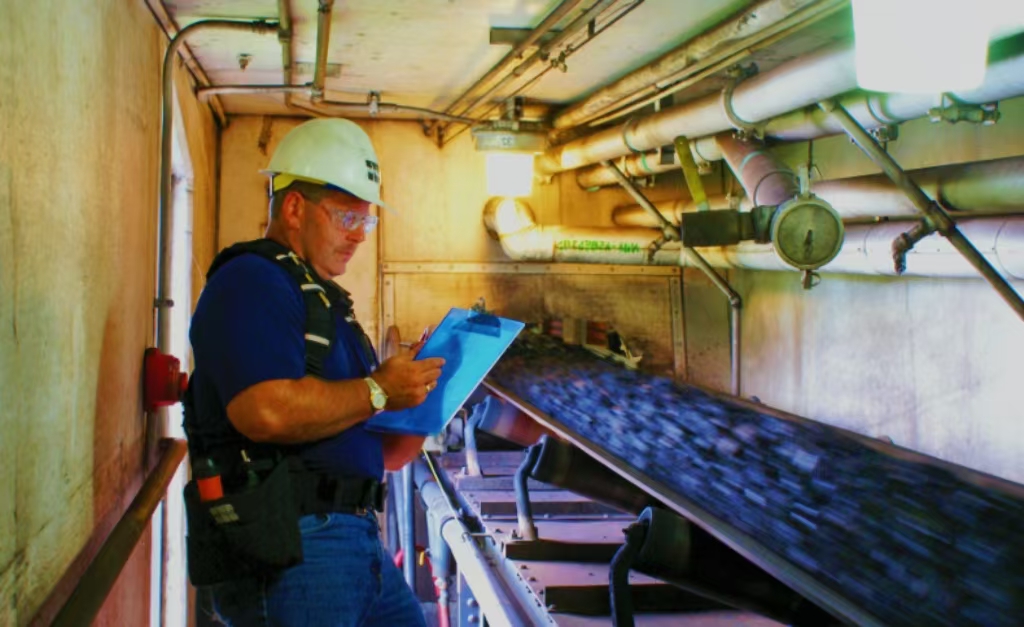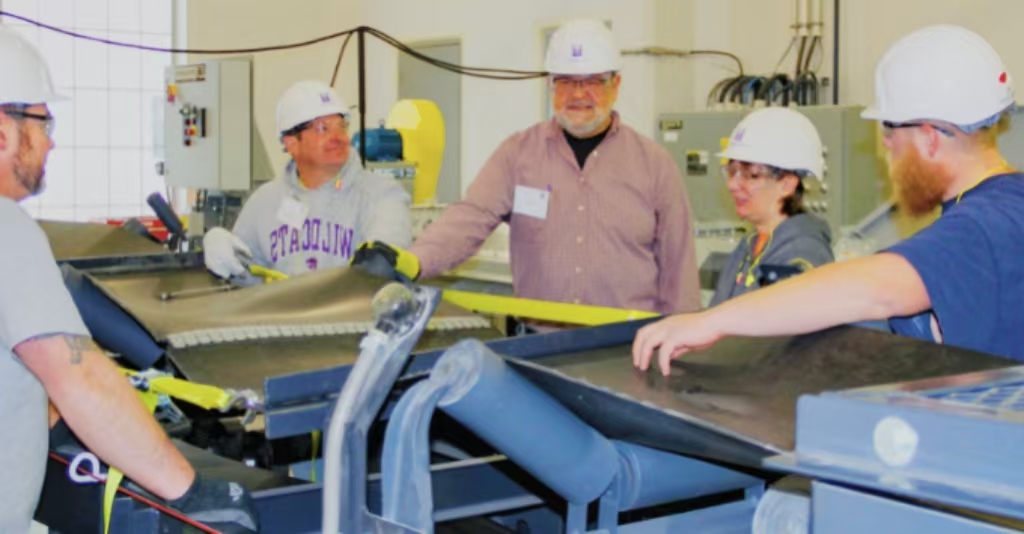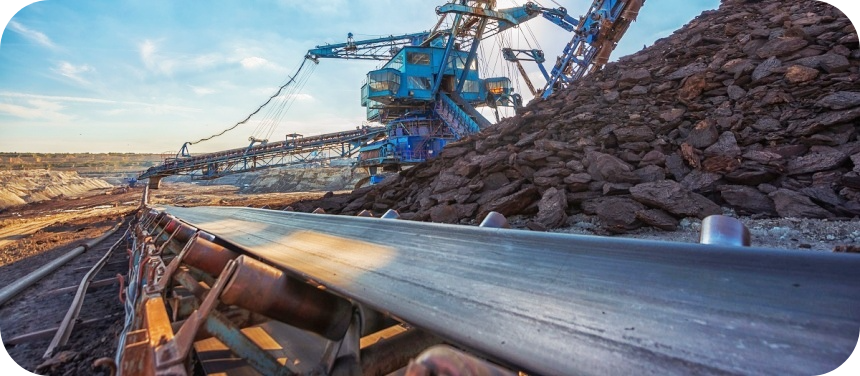Finding Career Opportunities: Become a Conveyor Belt Technician
The role of a conveyor belt technician is pivotal in the seamless operation of material handling systems across various industries. These technicians specialize in the installation, maintenance, and repair of conveyor belts, a critical component in manufacturing, mining, and transportation sectors. Their expertise ensures the efficient movement of goods and materials, which is essential for the productivity and success of these industries. As industries evolve with technological advancements, the demand for skilled conveyor belt technicians grows, highlighting their significant role in supporting the backbone of industrial operations. Their work not only ensures operational efficiency but also plays a crucial role in workplace safety, making them indispensable in settings where conveyor systems are integral.
What is the Role of a Conveyor Belt Technician
Key Responsibilities
A conveyor belt technician plays a crucial role in the installation, maintenance, and repair of conveyor belts, essential in various industrial operations. Their responsibilities extend beyond simple mechanical repairs, encompassing regular inspections, troubleshooting, and ensuring that conveyor systems operate efficiently and safely. This role demands a comprehensive understanding of conveyor belt technology and mechanics, making them indispensable in industries like mining, manufacturing, and packaging.
Impact on Modern Industry
The significance of conveyor belt technology in modern industry is immense. Conveyor systems are central to production lines across sectors, directly influencing efficiency and output. The expertise of a conveyor belt technician is vital in maintaining the uninterrupted flow of operations, ensuring safety, and upholding productivity standards. As industries evolve with technological advancements, the role of the conveyor belt technician becomes increasingly significant, adapting to new challenges and innovations in conveyor systems.
Training and Certification for Conveyor Belt Technicians
The Training Process

The journey to becoming a conveyor belt technician involves a comprehensive training process that equips candidates with the necessary skills and knowledge. Typically, this training includes both classroom instruction and hands-on experience. Aspiring technicians learn about the various types of conveyor belts, their components, and how they operate within different industrial systems. The training often covers key areas such as safety protocols, installation techniques, maintenance procedures, and troubleshooting methods. Apprenticeships or on-the-job training under experienced technicians are common, providing practical, real-world experience.
Certification and Its Importance
After completing the training, obtaining certification is a crucial step for a conveyor belt technician. Various certifications are available, each focusing on different aspects of conveyor belt technology and maintenance. These might include certifications specific to certain types of equipment, safety standards, or advanced repair techniques. Obtaining certification not only validates the technician’s skills and knowledge but also enhances their credibility and employability in the industry. It assures employers of the technician’s ability to adhere to industry standards and perform tasks to a high standard.
Essential Skills and Knowledge
A conveyor belt technician must possess a blend of specific skills and knowledge, much of which aligns with those required for Conveyor Belt Operators. This includes a strong understanding of mechanical systems, proficiency in using tools and equipment for repair and maintenance, and a keen eye for detail to identify potential issues. Knowledge in areas such as operations monitoring, quality control analysis, and troubleshooting is also essential. Additionally, soft skills like effective communication, problem-solving, and the ability to work under pressure are crucial for success in this role. Continuous learning is also a key aspect, as conveyor belt technology is ever-evolving, requiring technicians to stay updated with the latest advancements and techniques.
Conveyor Belt Technician Jobs
Exploring the Job Market

The job market for conveyor belt technicians is both dynamic and essential, reflecting the critical role these professionals play in various industries. As industries reliant on conveyor systems continue to grow, so does the demand for skilled conveyor belt technicians. This growth is driven by the need for efficient material handling in sectors such as manufacturing, mining, logistics, and packaging. The market for conveyor belt technicians is not only stable but also offers opportunities for career advancement and specialization, especially for those with advanced skills and certifications.
Finding Jobs Near You
For those seeking conveyor belt technician jobs, there are several effective strategies. Utilizing online job portals and websites specializing in industrial or technical careers is a common approach. These platforms often allow for location-based searches, making it easier to find opportunities in one’s vicinity. Additionally, networking within industry circles, attending trade shows, and connecting with professional organizations can uncover hidden job opportunities. Many companies also list vacancies directly on their websites, so checking the career pages of companies known to use conveyor systems can be fruitful.
Industries and Environments in Demand
Conveyor belt technicians are in demand across a wide range of industries and environments. Manufacturing plants, especially those in automotive, electronics, and food processing, regularly require the expertise of these technicians. The mining industry, known for its extensive use of conveyor systems for material transport, is another significant employer. Warehousing and distribution centers, as well as airports with complex luggage handling systems, also offer numerous opportunities. The work environment can vary from indoor factories to outdoor mining sites, each presenting unique challenges and requiring specific skill sets. This diversity in work environments ensures that the role of a conveyor belt technician remains varied and engaging.
Job Description and Responsibilities of a Conveyor Belt Technician
A conveyor belt technician is a skilled professional whose role is critical in maintaining the efficiency and safety of conveyor systems in various industrial settings. Their job description encompasses a range of tasks and responsibilities that are essential for the smooth operation of these systems.
Detailed Breakdown of Job Description
Installation: Conveyor belt technicians are responsible for installing new conveyor systems. Conveyor belt field service technicians need extensive experience in conveyor belt installation, servicing, and repair, ensuring safety and proper tool use in industrial settings. Also includes understanding technical drawings, accurately setting up the conveyor belts, and ensuring their proper integration into existing systems.
Maintenance: Regular maintenance is a key part of their role. This involves conveyor belt inspection for wear and tear, lubricating moving parts, and making necessary adjustments to ensure optimal performance.
Repair: They are tasked with diagnosing and fixing issues that arise with conveyor systems. Tasks involving a conveyor belt tear can range from patching small rips to replacing entire sections or components of the belt. This involves identifying the severity of the tear, implementing temporary or permanent fixes, and ensuring the conveyor system resumes optimal operation. Proper maintenance and timely repairs are crucial to prevent further damage and minimize downtime.
Upgrades: Technicians may also be involved in upgrading parts of the conveyor system to improve efficiency, capacity, or safety.
Day-to-Day Tasks and Long-Term Responsibilities
Daily Inspections: Conducting routine checks of the conveyor systems to identify any potential issues early.
Emergency Response: Being on call to quickly address and resolve sudden breakdowns or malfunctions in the conveyor system.
Record Keeping: Maintaining detailed records of maintenance, repairs, and replacements for future reference and compliance purposes.
Collaboration: Working closely with other maintenance staff, engineers, and management to ensure the conveyor system meets the operational needs.
Importance of Safety and Efficiency
Safety Compliance: Ensuring that all work complies with industry safety standards and regulations is a critical aspect of a conveyor belt technician’s role. This includes conducting safety audits and implementing safety protocols.
Efficiency Optimization: A significant part of their job is to ensure that the conveyor systems operate at maximum efficiency. This involves optimizing the speed, reducing downtime, and ensuring minimal disruption to operations.
Training and Development: Staying updated with the latest safety standards and technological advancements in conveyor systems. This may involve attending training sessions and workshops.
The role of a conveyor belt technician is multifaceted, requiring a blend of technical skills, attention to detail, and a strong commitment to safety and operational efficiency. Their day-to-day tasks and long-term responsibilities are pivotal in ensuring that conveyor systems function smoothly and effectively in various industrial environments.

Crafting the Perfect Resume for a Conveyor Belt Technician
Creating a compelling resume is crucial for a conveyor belt technician looking to advance their career. The resume should not only showcase technical skills and experience but also highlight the unique attributes that make a candidate stand out. Here are five tips to craft an effective resume:
Highlight Relevant Technical Skills
- Mechanical Proficiency: Detail your experience with different types of conveyor systems, emphasizing your ability to install, maintain, and repair these systems.
- Troubleshooting and Problem-Solving: Demonstrate your ability to diagnose and resolve issues with conveyor belts, showcasing specific instances where you successfully rectified complex problems.
- Safety Compliance: Emphasize your knowledge and adherence to safety protocols and regulations, highlighting any safety courses or certifications you have completed.
Showcase Your Experience
- Work History: List your previous roles as a conveyor belt technician, including the duration, key responsibilities, and significant achievements in each position.
- Project Highlights: If you have worked on notable projects, such as large installations or complex repairs, detail these experiences to show the scope and impact of your work.
Include Relevant Certifications and Training
- Certifications: List any industry-specific certifications you have, such as those in conveyor belt maintenance, safety standards, or specialized equipment.
- Continued Education: If you have pursued additional training or courses relevant to the role of a conveyor belt technician, include these to demonstrate your commitment to professional development.
Demonstrate Soft Skills and Adaptability
- Communication Skills: Highlight instances where effective communication (with team members, supervisors, or clients) played a key role in your job.
- Adaptability: Showcase your ability to adapt to different working environments or rapidly changing situations, which is crucial for field technicians.
Tailor Your Resume to the Job Description
- Customization: Align your resume with the specific requirements of the job you are applying for. Use keywords from the job description, and ensure that your skills and experiences directly relate to the listed requirements.
Key Experiences and Skills to Highlight
For a conveyor belt technician, certain experiences and skills are particularly valuable:
- Installation and Maintenance: Detailed examples of your experience in installing and maintaining conveyor systems.
- Emergency Response and Repair: Instances where you successfully handled emergency repairs under pressure.
- Technical Knowledge: Proficiency in the technical aspects of conveyor systems, including understanding of mechanical and electrical components.
- Teamwork and Leadership: Experiences where you have effectively worked in a team or led a project.
A well-crafted resume for a conveyor belt technician should effectively showcase technical skills, relevant experiences, certifications, and the soft skills that make you an excellent candidate for the role. Tailoring your resume to align with the specific job you’re applying for will further enhance your chances of success.
Salary Expectations for Conveyor Belt Technicians
Understanding the salary expectations for a conveyor belt technician is crucial for those entering the field or looking to negotiate their compensation. The salary for this role can vary based on several factors, making it important to have a comprehensive overview.
Overview of Salary Range
The salary range for conveyor belt technicians can vary widely. Entry-level technicians may start at a lower range, while experienced technicians with specialized skills or certifications can command higher salaries. On average, the salary can range from a modest starting point to a more lucrative amount for senior-level technicians. This range is influenced by the complexity of the tasks, the level of expertise required, and the responsibilities that come with the role.
Factors Influencing Salary
Several key factors can significantly impact the salary of a conveyor belt technician:
- Location: Geographic location plays a crucial role in salary variation. Technicians in urban or industrialized areas, where the demand for their skills is higher, often earn more than those in rural areas.
- Experience: Experience is a significant factor in determining salary. Technicians with several years of experience, particularly those who have specialized skills or have worked on complex projects, tend to earn more.
- Industry: The specific industry employing the conveyor belt technician also affects salary. Industries that rely heavily on conveyor systems, such as manufacturing, mining, or logistics, may offer higher salaries due to the critical nature of the role.
- Certifications and Education: Technicians who have obtained additional certifications or have undergone specialized training can often negotiate higher salaries. These qualifications demonstrate a higher level of skill and knowledge, which is valuable to employers.
- Company Size and Type: Larger companies or those with more complex conveyor systems might offer higher salaries compared to smaller firms. Additionally, companies that prioritize safety and efficiency might invest more in skilled technicians.
- Market Demand: The current job market demand for conveyor belt technicians can also influence salary levels. In regions or industries where these technicians are in high demand, salaries tend to be higher to attract and retain talent.
The salary of a conveyor belt technician can be influenced by a combination of factors, including location, experience, industry, and qualifications. Aspiring and current technicians should consider these factors when evaluating job opportunities and negotiating salaries. It’s also beneficial to stay informed about industry trends and demands, as these can change over time, impacting salary standards and expectations.
Career Path and Advancement for Conveyor Belt Technicians
The career path for a conveyor belt technician offers various opportunities for advancement and specialization, making it a field with promising prospects for growth and development.
Career Progression

Starting as a conveyor belt technician typically involves entry-level positions where the primary focus is on learning the basics of conveyor system installation, maintenance, and repair. As technicians gain experience, they can progress to more advanced roles with greater responsibilities. This progression might include becoming a lead technician, supervising a team, or managing larger and more complex projects.
Experienced technicians may also move into roles that involve training and mentoring newcomers, sharing their knowledge and expertise with the next generation of technicians. For those with a strong technical background and leadership skills, positions such as maintenance manager or project manager are potential advancements.
Specialization Opportunities
Conveyor belt technicians have several avenues for specialization, allowing them to focus on areas where they have the most interest or aptitude. Specializations can include:
- High-Tech Conveyor Systems: With the advancement of technology, some technicians may choose to specialize in high-tech conveyor systems, such as those using automation and sophisticated control systems.
- Specific Industries: Technicians might specialize in industries that heavily rely on conveyor systems, such as mining, automotive manufacturing, or food processing. Each industry has unique requirements and challenges.
- Safety and Compliance: Specializing in safety and compliance is another path, focusing on ensuring that conveyor systems meet all regulatory standards and best practices for safety.
- Repair and Troubleshooting: Some technicians may excel in diagnosing and fixing complex problems, making them experts in repair and troubleshooting.
Continuous Learning and Certification
Advancement in this field often requires continuous learning and upskilling. Pursuing additional certifications, attending workshops, and staying updated with the latest industry trends are crucial for career advancement. Certifications in specific types of equipment, safety standards, or advanced repair techniques can open doors to higher positions and specialized roles.
Entrepreneurial Opportunities
Experienced conveyor belt technicians may also explore entrepreneurial paths, such as starting their own maintenance and repair businesses or consulting firms. This route allows for greater autonomy and the opportunity to leverage their expertise in a more flexible and potentially lucrative way.
In summary, the career path for a conveyor belt technician is not linear but offers a variety of routes for advancement and specialization. With experience, continuous learning, and a willingness to adapt, technicians in this field can achieve significant professional growth and success.
Discover why industries trust our conveyor belts. Contact us for details!
Real-life Experiences of Conveyor Belt Technicians
Gaining insights from those who have walked the path can be invaluable for anyone considering a career as a conveyor belt technician. Interviews and stories from experienced technicians shed light on the real-world aspects of the job, including its challenges and rewards.
Interviews with Seasoned Technicians

- Career Journey: Many conveyor belt technicians have fascinating stories about how they entered the field. These narratives often include initial interests, pivotal training experiences, and significant milestones in their careers.
- Day-to-Day Reality: Experienced technicians can provide a vivid picture of what a typical day looks like, including the variety of tasks they handle, the environments they work in, and the types of equipment they encounter.
- Memorable Projects: Sharing experiences from specific projects, especially challenging or unusual ones, can highlight the problem-solving and technical skills required in this profession.
Challenges Faced on the Job
- Technical Difficulties: Conveyor belt technicians often face complex mechanical or electrical issues that require innovative solutions. Hearing about these challenges firsthand can provide a realistic view of the technical expertise needed.
- Safety Concerns: Given the nature of the work, safety is always a paramount concern. Experienced technicians can discuss situations where they had to implement rigorous safety measures to prevent accidents.
- Adapting to Change: The field is constantly evolving with new technologies and methods. Technicians can share how they stay updated and adapt to these changes.
Rewards of Being a Conveyor Belt Technician
- Sense of Accomplishment: Many technicians express a strong sense of accomplishment in keeping essential systems running and solving complex problems.
- Career Growth: Stories of career progression, from starting as an apprentice to becoming a seasoned expert, can be inspiring. They highlight the potential for growth and development in this field.
- Impact on Industries: Experienced technicians often take pride in knowing that their work has a direct impact on the efficiency and success of various industries, from manufacturing to logistics.
Personal Development
- Skill Enhancement: Technicians can discuss how their skills have grown over time, including both technical abilities and soft skills like communication and teamwork.
- Lessons Learned: Sharing key lessons learned throughout their careers can provide valuable insights for newcomers to the field.
Real-life experiences from conveyor belt technicians offer a wealth of knowledge and understanding about the profession. These stories and insights can be incredibly beneficial for those considering this career path, providing a realistic and comprehensive view of what it means to be a conveyor belt technician.
FAQs about Conveyor Belt Technician
A conveyor belt technician is a specialized professional responsible for the installation, maintenance, and repair of conveyor belts. These belts are crucial components in various industries for the transportation of materials and goods. The technician’s role involves ensuring that these conveyor systems operate efficiently, safely, and in compliance with industry standards. Their tasks include conducting regular inspections, identifying and fixing mechanical issues, and performing necessary adjustments or replacements. They must be adept in using a range of tools and possess a strong understanding of mechanical and electrical systems. Additionally, conveyor belt technicians play a vital role in emergency repairs and preventive maintenance, ensuring minimal downtime and prolonging the lifespan of the conveyor systems.
A conveyor belt job refers to a role that involves working with conveyor systems. These jobs can vary but typically include positions like conveyor belt technicians, operators, and attendants. Each role has specific responsibilities, but generally, they revolve around the operation, maintenance, and oversight of conveyor belt systems. These systems are used in various industries, such as manufacturing, mining, logistics, and retail, to move products and materials efficiently. The job requires a combination of technical knowledge, physical ability, and often, the skill to troubleshoot and solve problems related to conveyor systems.
A conveyor belt attendant’s primary responsibility is to oversee the operation of conveyor systems. This role involves monitoring the conveyor’s performance, ensuring materials are correctly placed and transported, and identifying any operational issues. Attendants are responsible for the immediate response to any malfunctions or jams, ensuring the safety and efficiency of the conveyor system. They may also be involved in basic maintenance tasks, cleaning, and ensuring compliance with safety standards. Conveyor belt attendants play a crucial role in industries where continuous material handling is essential, and they need to be vigilant, detail-oriented, and proactive in their approach.
Checking conveyor belt alignment is crucial for the smooth operation of the conveyor system. Begin by visually inspecting the belt while it’s running, looking for any sideways movement along the conveyor. The belt should consistently be centered on the pulleys and rollers. If you notice the belt drifting to one side, first check for debris or material buildup on the rollers, as this can cause misalignment. Next, inspect the condition and alignment of the rollers and pulleys. They should be parallel to each other and perpendicular to the conveyor frame. If adjustment is needed, use the tracking mechanisms provided on the conveyor, typically located on the end pulleys. Adjust these tracking mechanisms incrementally and observe the effect on the belt’s position. It’s important to make small adjustments and allow the belt to run for a period before making further changes. If alignment issues persist, it may indicate a more complex problem, such as uneven wear on the belt or structural issues with the conveyor frame.
A conveyor system technician is responsible for the installation, maintenance, and repair of conveyor systems. Their role involves ensuring that these systems operate efficiently and safely. They diagnose issues, perform regular inspections, and replace or repair parts as needed. This role requires a deep understanding of mechanical systems, as well as proficiency in troubleshooting electrical and electronic components. Conveyor system technicians must also be familiar with the specific requirements of different industries, as conveyor systems can vary significantly depending on their application. Ensuring compliance with safety standards and regulations is a critical aspect of this role, as is the ability to work effectively both independently and as part of a team.
The duties of a conveyor belt worker include operating and monitoring conveyor systems to ensure they function correctly. This involves starting and stopping the conveyor belt, loading and unloading materials, and adjusting settings to maintain optimal performance. Conveyor belt workers are also responsible for inspecting the equipment regularly to identify any potential issues or wear and tear. When problems arise, they must troubleshoot and make necessary repairs or adjustments. Additionally, they must maintain a clean and safe work environment by adhering to safety protocols and procedures. This role often requires physical stamina, attention to detail, and the ability to work in a fast-paced environment.
A conveyor belt worker is often referred to as a conveyor belt technician or conveyor operator. These titles reflect their primary responsibilities, which include operating, maintaining, and repairing conveyor belt systems. In some industries, they may also be known as belt splicers, particularly when their duties focus on joining and repairing sections of conveyor belts. Regardless of the specific title, these workers play a crucial role in ensuring that conveyor systems function smoothly and efficiently, minimizing downtime and maintaining productivity in various industrial settings. Their expertise in handling conveyor systems makes them vital to the operations of many manufacturing and processing facilities.d longevity.
Last Updated on June 14, 2024 by Jordan Smith
Jordan Smith, a seasoned professional with over 20 years of experience in the conveyor system industry. Jordan’s expertise lies in providing comprehensive solutions for conveyor rollers, belts, and accessories, catering to a wide range of industrial needs. From initial design and configuration to installation and meticulous troubleshooting, Jordan is adept at handling all aspects of conveyor system management. Whether you’re looking to upgrade your production line with efficient conveyor belts, require custom conveyor rollers for specific operations, or need expert advice on selecting the right conveyor accessories for your facility, Jordan is your reliable consultant. For any inquiries or assistance with conveyor system optimization, Jordan is available to share his wealth of knowledge and experience. Feel free to reach out at any time for professional guidance on all matters related to conveyor rollers, belts, and accessories.



